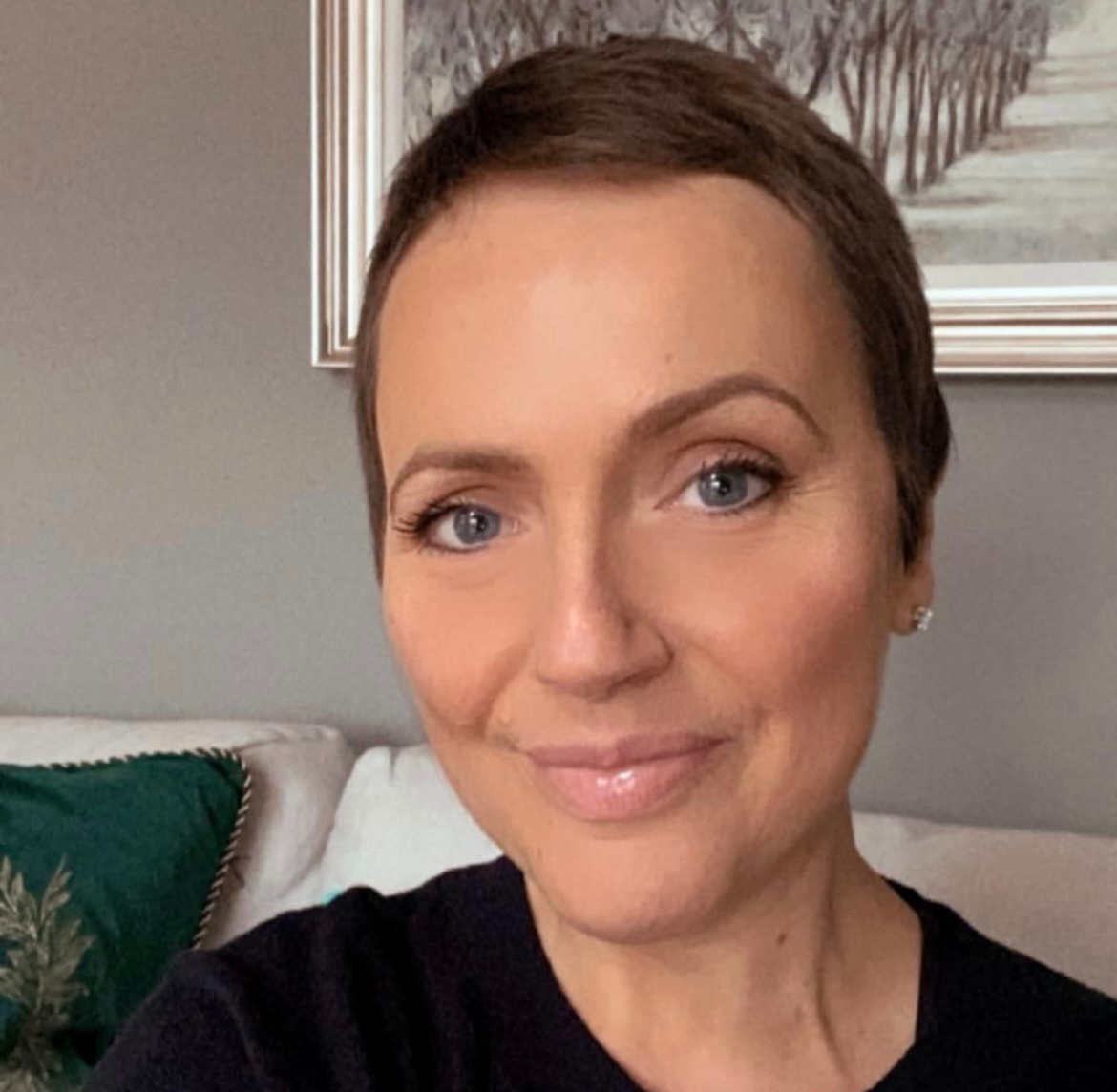Sex. We all know in those early heady months and years of a new relationship, physical intimacy takes centre stage. Effort levels are 100. Then, slowly, life happens. (Over) familiarity. Crazy work schedules. Energy-absorbing kids. Running a household. Multi-tasking. Tiredness. Menopause… the list is endless.
All too often, sex falls way down the priority list. In fact, it’s quite common for it to be forgotten about completely or rendered to a predictable quickie once every other month. A dwindling sex life has been the topic of numerous egg posts recently with questions of ‘what’s normal’, ‘why has this happened’ and ‘why don’t I miss it?’ as attempts to re-inject that spark back into the bedroom are considered.
According to Paula Bell, an Edinburgh sex and relationship psychotherapist, these feelings are all too common.
She explains: “At the beginning of a relationship, there is a potent mix of ingredients which fires up lust: oxytocin, often referred to as the love drug; testosterone and oestrogen, which drive lust; dopamine, norepinephrine and serotonin which create that feeling of attraction; and vasopressin which creates the bond of attachment.
“Sex naturally goes down on the priority list because when couples spend more time with each other, live together and maybe have children, some of these feelings start to dissipate. We change the focus from being all about each other to work, children, finances, friends, hobbies, and other things. It can feel difficult to find enough time for each other when previously it seemed like we had all the time in the world.”
Amanda Barge, a psychosexual relationship and individual therapist with more than 15 years’ experience, agrees and adds: “The amount of sex we have does change over the course of the relationship. After 18 months to two years, this often tails off a bit - life gets in the way and projections drop off. The things that you once found endearing and cute, can become irritating and annoying after a few years.
“Life events. Ageing parents. Children. Jobs. These can all get in the way and have an effect on sex. It can happen at any life stage too, especially if there’s major life events, such as stress at work, mental health, depression, medication, illness. This is why it’s really important that communication is key; if there’s problems in the relationship, there’s likely to be problems in the bedroom.”

Edinburgh-based Amanda, who specialises in couples therapy, sex therapy and erection coaching, stresses that a sex drought needs to be addressed sooner rather than later. “If sex and intimacy isn’t talked about it can easily begin to become an awkward topic. People can feel rejected, resentful, guilty, shameful and all of this stuff can get played out.”
She adds “We always say ‘great sex doesn’t equal great relationships’, but if there’s a problem with sex then it can be corrosive for the relationship.”
Following a recent Facebook post, one egg revealed off-line privately that she’s devoid of desire. This, she admitted, concerns her. “I just don’t feel like sex anymore,” she confided. “egg’s recent A Women’s Mental Load article really resonated with me. I’m constantly tired and, whilst I love my husband, I cannot be bothered being intimate. I used to be really in tune with my sexuality; it’s as if there’s something now wrong with me.”
Another egg confessed. “I’m never in the mood! Don’t get me wrong, I find my partner sexually attractive and I’d be devastated if he strayed, but I can’t muster up the effort. I think it’s been four or more months since we last had sex and even then, I just went through the motions.”
Reassuringly, this feeling is common and there’s nothing “wrong” per se.
“It would be less common for couples to have a really healthy, enjoyable and frequent sex life!” admits Amanda. “I think you’re lucky if you’ve managed to navigate that.”
In fact, Amanda explains precisely why many of us might not feel in the mood, or even miss sex. Which may well help get that libido back…
She says “Some women say ‘I’ve not felt like it in years’ but, as sex therapists, we often find it’s something in the relationship that’s removing this desire. There’s been lots of work done in the past ten years in female sexuality and there’s a thing called ‘arousal graph’. Women’s and men’s arousal graphs are different.
“For men, they can easily have the desire to have sex which will move onto arousal and then love making. With women, what will often happen (especially if there’s pressures in life) is that they think they have to wait for the desire to have sex. They might be waiting a long time! We’ve found that women need to work out what the stimulus are for their arousal so they can begin to feel arousal in their bodies. That will then move into desire and then love making.”
Amanda, who regularly coaches couples through sex droughts, adds: “And so many women say, I wished I’d remembered that I do enjoy sex when I start. Often, it’s working out how to get to that place to kickstart the desire. This comes down to good communication and understanding what’s going to work. If you’ve had a row or feel frustrated, it’s going to be hard to feel aroused. Communication is important.”
Ah yes, communication. So sex lives can be re-invigorated - if we’re willing to talk about it.
“But it absolutely can come back,” stresses Amanda. “There’s been a lot of work with mindfulness and how helpful that can be. There’s also a good book by Emily Nagoski called “Come as You Are” that discusses the science of sex and is about the brakes and accelerants for women. It’s definitely worth a read.
“Some couples in their 50s and 60s find sex more enjoyable, but these are the couples that have gone through life changes and can communicate these changes as well as those in their body, in what they enjoy. I cannot stress the importance of communication.”
What both experts believe is that the impact that lack of sex can have on your relationship, can be significant. “One of you may begin to feel rejected, unattractive, and stop trying to initiate sex,” reveals Paula, who is also a couple and individual therapist. “Distance increases between you. Sexual difficulties may begin to develop. The impact of lack of sex can be huge, causing arguments, silences, irritability and general friction in your relationship. It can be hard to discuss for fear the whole relationship will crumble.”
“But it’s possible to re-establish that intimate connection and re-energize both the relationship and things in the bedroom. We can move forward to create a deeper more intimate loving and lasting connection.”

SEX THERAPIST ADVICE FOR RE-ESTABLISHING A HEALTHY SEX LIFE
According to Paula Bell and Amanda Barge, once you’ve identified the problems there’s no reason why you can’t change the situation and improve it dramatically. Here, they reveal some of their top tips to get your groove back!
COMMUNICATE, COMMUNICATE, COMMUNICATE!
“The key to moving forward is communication,” says Amanda. “There’s great books out there you could read it together. There’s various packs of ‘Couple Cards’ out there, too. It’s important to get out of your heads and into your bodies and let the unconscious stimulus take over.” The five love languages can be helpful for couples to work out what’s important for them. Amanda adds “For men, they often need sex to feel loved. For women, they need to feel loved to want to have sex. Some might find romance a turnoff. It’s the conversations that are key, sharing and being vulnerable.” And, as Paula perfectly puts it “Talk through any difficulties and find a peaceful place between you. Unresolved arguments are not aphrodisiacs!”
NORMALISE SEX TIME
We don’t need to be ripping each other’s clothes off every night. In fact, according to Amanda around three times a month is the norm. So give yourself some slack. And negotiate what you want in the bedroom.
Amanda explains “By talking about it, it also releases couples from that awful part in bed where one wants it, the other isn’t in the mood but feels guilty. You can work out a routine that suits you and enjoy a good cuddle on the nights that it’s not going to lead to anything. This can strengthen the relationship greatly and leave it less vulnerable to separation or affairs.”
And if this sounds a complete mood killer, Amanda reminds us: sex is actually very rarely unplanned.
“Set aside time, diarise it – sex is never spontaneous,” she stresses. “When we are dating someone, we think and plan what dress we’re going to wear, what perfume to put on, what underwear. You know you’re going to have sex. It’s not spontaneous!”

GO BACK IN TIME
“Try stepping back in time (to those initial heady years) to re-establish a healthy sex life,” advises Paula. “Increased intimacy is the first step as sex happens in the right context. The foreplay begins after the last sexual encounter finishes, as Esther Perel puts so well.
“Pay each other compliments. This will make your partner feel more attractive and sexy. Flirt, touch each other, cuddle and kiss as you part. Sexual arousal is about the tease and anticipation if not more than the act. Plan date nights, dress up, go out or stay in. Have candlelit dinners. Surprise each other.” So, make the effort again that you used to. And avoid taking each other for granted. Paula agrees and adds “Thank You goes a long way towards building the feeling of warmth and being appreciated.”
GET AROUSED
“The first stage of arousal is willingness to begin,” reveals Paula. “The second stage is taking pleasure in giving and receiving touch. More often than not the third and fourth stages of desire and arousal will follow naturally. Sex is not just intercourse it’s sexual and intimate touch in any form. You do not need to orgasm to receive sexual pleasure, contentment and satisfaction.”
Preparation also helps. It’s in the diary, you know it’s happening. So, indulge in some pamper time to feel as confident as possible. Even if you’re not in the mood, take it slowly, advises Amanda. “And if there’s pain, especially around the menopause years, a big pot of lube is essential.”
And remember, sex is often described as the glue that holds couples together and is a very bonding activity. Amanda reminds us: “Orgasm is a great stress busting activity. If that intimate part is missing then it can be corrosive for the rest of the relationship, which can lead to conflict and arguments.”
So, let go…and go for it.

INVEST IN A SEX OR RELATIONSHIP THERAPIST
“I always say just as we MOT our cars, we need to MOT our relationships,” explains Amanda.
“Engaging in sex therapy can help couples have the difficult conversations they couldn’t have themselves. A therapist helps get people more used to asking their partners for their needs to be met – and discovering what those needs are.
“Make sure you have someone that has the proper training and see it as a marvellous investment that will safe proof your relationship for the future. One thing’s for sure, if you leave your partner, get into a new relationship a very similar thing will happen unless you’ve done the work on yourself.”
Erectile dysfunction, a real issue for men, is often psychological. Again a sex therapist can help, whether that’s face to face sessions or online.
A huge thank you to sex experts Paula Bell and Amanda Barge. Paula Bell is an Edinburgh sex and relationship psychotherapist and Amanda Barge is a psychosexual relationship and individual therapist. For more information visit https://life-wize.co.uk/ sex-and-relationship-therapy/ and https://www.amandabarge. com/services/sex-therapy




